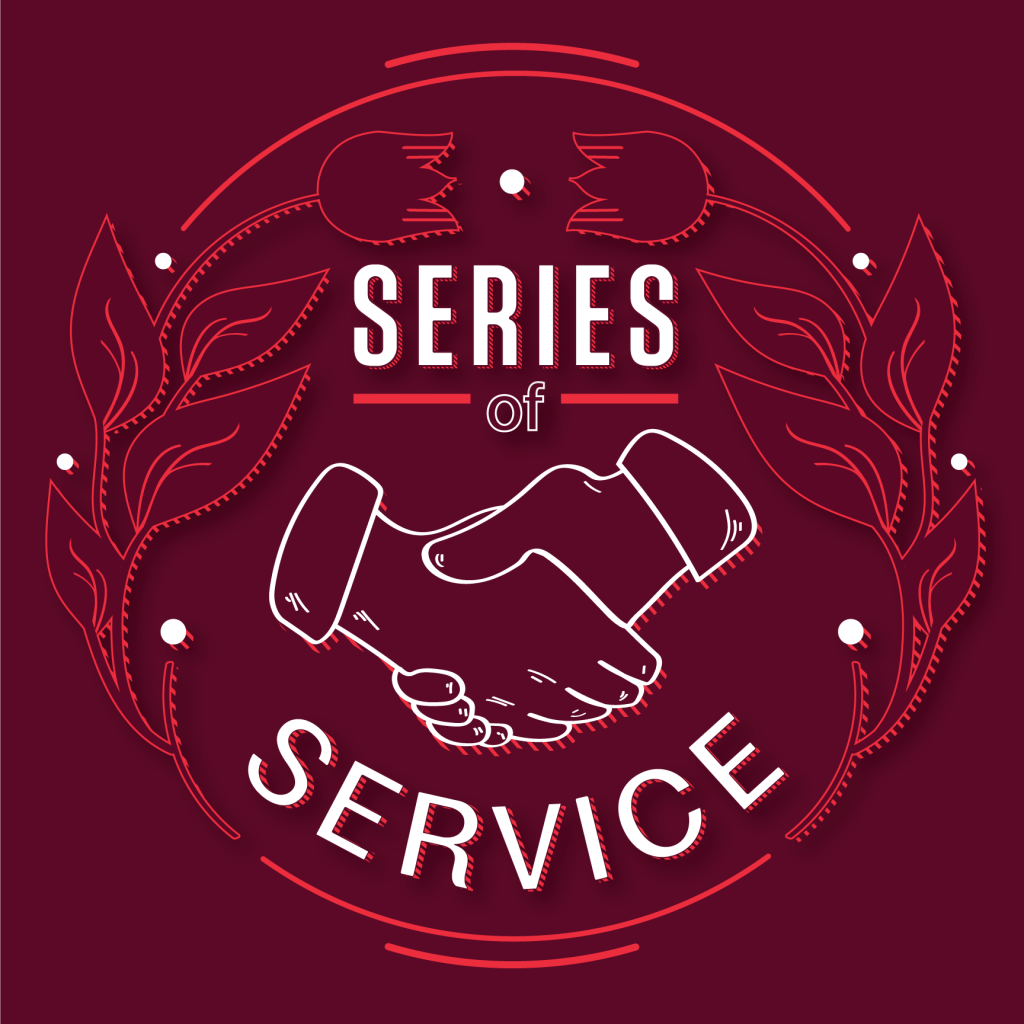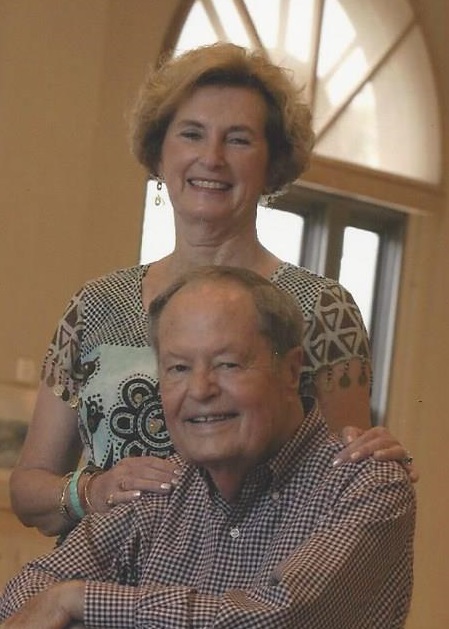Helen Jenswold: ‘Texas A&M molds people into leaders’
As businesses owners, Helen and her late husband Roger ‘52 had great success. Helen credits the liberal arts with preparing them for their careers.

By Rachel Knight ‘18
Editor’s Note: The following is a Series of Service feature from the College of Liberal Arts.
The series highlights individuals who give generously of their time and resources as members of either the Liberal Arts Development Council or the Liberal Arts Advisory Council. Life-long learning and humanities research that matters at Texas A&M University would not be possible without this support.

Helen and her late husband Roger Jenswold ’52 share a passion for supporting Aggies through the College of Liberal Arts.
Helen Jenswold and her late husband Roger ‘52 were successful business owners. They worked as a team to develop and operate their own investment firm. Roger handled the investments, while Helen managed the company. Together they learned, grew, and ultimately shared the sentiment that their best employees had a well-rounded liberal arts education.
Their experience as business owners and affection for Texas A&M University led to their support of the College of Liberal Arts. Today, their generosity enables students to graduate from Texas A&M with degrees in the field Helen says opens the door to the rest of your life—liberal arts.
At first glance, the Jenswold’s professional and philanthropic journey appears to have been a clear path, but Helen says she spent most of her life flying by the seat of her pants. We chatted on the phone with Helen to learn more about her and Roger’s story. This interview, which was condensed and edited for clarity, may awe and inspire you.
Tell me a little about your childhood.
I grew up in Bremond, which is just about 50 miles north of College Station. I relocated to Houston after high school and attended what was at that time South Texas Junior College. It later became a part of the University of Houston. I worked in all sorts of different positions, and eventually ended up working as an administrator at American General Insurance Company. That’s where I met Roger.
What was he doing for the company at that time?
He was vice president of investments. There was a complex of several office buildings, and we worked in separate buildings. We really didn’t know each other.
At one point they consolidated the offices, and we ended up on the same floor. That’s when we met each other and developed a relationship. He had a very nice, high level position and it probably would not have been very advantageous for it to be known that we were dating, so we dated on the quiet side. Actually, most people in the office didn’t know we had gotten married until the day we announced our marriage. We thought we had pulled off a really big coup by doing that.
How were you introduced to Texas A&M?
Growing up I had crushes on Aggies all the time, but Roger was the first person I knew that had attended school there. We started going to a few football games together, and of course I probably became more of a fan than Roger.
He shared all of his experiences from Texas A&M and being in the Corps of Cadets. They sounded so incredible that I couldn’t believe the camaraderie and relationships he had with everybody. Even beyond school, they were lifetime relationships. I was terribly impressed and enamored with it all.
What are your personal favorite memories of your time at Texas A&M?
I love the students. They are so enthusiastic, so fun to be around. It’s hard not to be happy when you’re there. I’m incredibly impressed. Everything we get in the news is that kiddos lack so much. When you come to campus, you see all of these bright, ambitious, smart, and clean cut students. That just makes my heart feel good.
What were some of Roger’s favorite memories of his time as a student at Texas A&M?
There are so many of them. He developed lifetime friendships that impacted him forever. It taught him discipline, which helped us tremendously when we started our own company. There are so many things that he took from Texas A&M that he realized were part of who he was and how he conducted himself and his business.
How did you and Roger decide to start your own company?
Roger grew up in San Antonio. Part of his church basketball group stayed together almost all of their lives. One friend in particular became a sort of mentor to us as we started our own company. He had become a successful oil person and was doing quite well. Roger was at American General and was in the position to discuss investments. His friend said he could use some of Roger’s help in that category, but Roger couldn’t share anything because it would be a conflict of interest.
His boyhood friend was rather insistent, and when he becomes insistent you can’t change his mind. Roger said, “Well the only way I could do it would be if I started my own company.” His friend said, “Ok. Then I’ll pay my fee to you a year in advance if you will consider starting your own firm so that you can do this for me and for other people.” That’s really the basis of how we started our own company in 1981.
We both left our positions at American General and started our business. I did the administrative side and Roger did the other professional side of it. Roger’s friend is responsible for us doing what we did and being successful, because after he got involved, he spent all of his free time marketing for us. He called every friend he had, every business contact, and tried to get an appointment to talk to Roger. After the first year, 30 percent of all of the clients we were fortunate enough to have were because of his boyhood friend.
In a 2009 issue of Spirit of Sharing, you said Roger attributed his personal and business success to Texas A&M. Tell me a little about what those successes were.
The things that you have to do to be able to succeed, Roger got at Texas A&M. You have to be able to perform. You have to be loyal to the people who will become your clients. You have to excel. You have to do your best and respect everybody. When you have employees, you have to motivate them and get everybody going in the same direction. That requires teamwork and leadership. All of those things are part of what the Corps of Cadets instills. It makes a person who they are.
Texas A&M helps mold people into leaders we all want to work with or have working on our team. Finding the right employees was probably our most difficult challenge. We wanted people working for us who would have fit the Texas A&M mold.
How did liberal arts classes play into Roger’s career success?
I think his liberal arts classes contributed most to his success. He felt liberal arts was the real education. The other parts of it were learning a skill, and liberal arts was the door that opens you up to life.
His experience on campus that was most positive for him was with Dr. Abbott. He was head of the English department when Roger was here. Dr. Abbott was Roger’s counselor and mentor, and he advised him in many different areas. Roger attributed so much of his success to the guidance that Dr. Abbott gave him.
What are your personal and business successes?
I’ve been in office administration all my life, from lowly receptionist all the way up to treasurer of our company and office manager. We had two offices, and I was in charge of those. Those were my jobs, but my family and friends were always my focus.
In the 2009 Spirit of Sharing publication, Roger was also quoted as saying the liberal arts go across all disciplines and that it’s more important than any single discipline. Do you share this sentiment?
Absolutely! It’s evident in everything you do, everything you say, and everything you write. It teaches you how to learn. It is everything. You learn to think differently.
Why is it important for successful people like you and Roger to recognize the value of a liberal arts education for others?
You want the best for the students. You want them to be good people when they finish school and start on their journey. Hopefully all of the knowledge that was imparted on them guides them in the right direction. They should learn more than just one thing.
I think liberal arts students are much more desirable as employees. When we were hiring, candidates obviously had to be skilled in the financial side of it, but they also had to be able to communicate with high-level clients who were part of the arts or traveled all over the world. If you’re dealing with these people, you have to be able to relate to them. That’s all part of what liberal arts teaches.
What makes the College of Liberal Arts at Texas A&M stand out as an institution of higher education that you want to support?
I think it has outstanding faculty. I think Dean Matthews is the best! She is very interested in making it the best liberal arts school in the country, and I think she can.
Liberal arts is something that is easily taken for granted because it’s easier to identify with the engineers and veterinarians and students in all of the other schools, because you can say when you finish that you will have a specific job. But they have to know how to write and how to think critically. All of that comes from the College of Liberal Arts. It’s taken for granted that it is going to be part of what they know. I like making it known and more visible that liberal arts is what makes you successful.
What books are on your nightstand right now?
Anything that Ann Patchett writes. I’m a big fan of hers. I’m actually re-reading her book called State of Wonder right now. It’s a very entertaining book. I also like to read historical novels. They are probably my favorite.
What do you want your legacy to be at Texas A&M University?
I hope I’m remembered fondly and enthusiastically and that maybe somebody would smile when they hear my name. I’m very enthusiastic about supporting the College of Liberal Arts. I wish it great success and like to help in any way I can.
